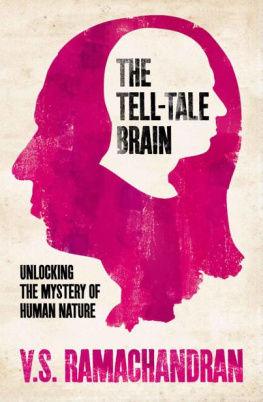Copyright 2012 Eva M. Selhub and Alan C. Logan
All rights reserved. No part of this work covered by the copyright herein may be reproduced or used in any form or by any meansgraphic, electronic or mechanicalwithout the prior written permission of the publisher. Any request for photocopying, recording, taping or information storage and retrieval systems of any part of this book shall be directed in writing to The Canadian Copyright Licensing Agency (Access Copyright). For an Access Copyright license, visit www.accesscopyright.ca or call toll free 1-800-893-5777.
Care has been taken to trace ownership of copyright material contained in this book. The publisher will gladly receive any information that will enable them to rectify any reference or credit line in subsequent editions.
This publication contains the opinions and ideas of its author(s) and is designed to provide useful advice in regard to the subject matter covered. The author(s) and publisher are not engaged in rendering medical, therapeutic, or other services in this publication. This publication is not intended to provide a basis for action in particular circumstances without consideration by a competent professional. The author(s) and publisher expressly disclaim any responsibility for any liability, loss, or risk, personal or otherwise, which is incurred as a consequence, directly or indirectly, of the use and application of any of the contents of this book.
Library and Archives Canada Cataloguing in Publication
Selhub, Eva M.
Your brain on nature : the science of nature's influence on your health, happiness, and vitality / Eva M. Selhub and Alan C. Logan.
Includes index.
Also issued in electronic format.
ISBN 978-1-118-10674-7
1. Brain. 2. Human beingsEffect of environment on. 3. TechnologyHealth aspects.
I. Logan, Alan C., 1967 II. Title.
QP376.S44 2012 612.82 C2012-900904-0
ISBN 978-1-118-10674-7 (pbk); ISBN 978-1-118-11449-0 (ebk); ISBN 978-1-118-11450-6 (ebk); ISBN 978-1-118-11451-3 (ebk)
Production Credits
Managing Editor: Alison Maclean
Executive Editor: Robert Hickey
Production Editor: Pauline Ricablanca
Cover Design & Cover Art: Adrian So
Composition: Thomson Digital
John Wiley & Sons Canada, Ltd.
6045 Freemont Blvd.
Mississauga, Ontario
L5R 4J3
This book is dedicated to Woodsy Owl and all individuals who have
worked tirelessly to preserve nature, to balance protection with access
and opportunity for nature engagement, and to raise awareness of
nature's importance to human health.
Introduction
Humanity's relationship with nature, a never-dull affair based on both fear and attraction, spans more than 2 million years. Our ancestors grew to understand the natural landscape, figuring out over time how to maximize their ability to secure the factors that sustained life and minimize the multiple threats to it. They grew to respect nature, balancing the understanding that nature can bite, sting, poison, maim, and kill, with an awe and appreciation of what the natural world could offer to promote health of mind and body.
Throughout the ages, and across cultures, philosophers, poets, nature writers, and outdoor enthusiasts have extolled the mentally rejuvenating and uplifting power of nature. But what of the science? To what extent is the 2-million-year relationship with the natural environment imprinted in our neurons, and to what extent does nature immersion and deprivation work for and against the individual?
In our contemporary age of science and technology, researchers have finally turned their attention toward the evaluation of these enthusiastic claims related to the medical aspects of nature. What started as a trickle of scientific inquiry in the 1970s has transformed into a formidable body of research, with many of the most startling research findings published within just the last 36 months. Scientific researchers are investigating nature's role in mental health at a time when humans are more distanced from the natural world than ever before, an environmental context in which humans are increasingly becoming part of the machine. Humans have long demonstrated a pronounced ability to use technology to conquer, control, and adapt to our natural environments. Our earliest ancestors used fire and crafted cutting and hunting tools, clothing, and shelters. Since then, technology and man's mastery over the natural environment have developed at an astonishing rate. As far back as a century ago, writers were concerned that industrialization had placed a machine in the garden, one capable of dramatically changing our natural world. Today, not only has the machine taken over the garden but there are also legitimate fears that there is now only a bit of the garden left within the machine.
This should be of great concern: natural environments offer unbelievable benefits for our health. As neuroscience develops at a rapid pace, researchers are uncovering functional aspects of the intricate anatomy and physiology of the human brain, allowing them to have a clearer picture of the true depths to which environmental factors influence cognitive and mental health. So far, the results suggest that we have completely underestimated the way in which the human brain is influenced by its physical environment and, in particular, by the elements of the natural worlds of water, vegetation, and animals. (And for our purposes, this is what we mean when we refer to nature: the nonbuilt, nonsynthetic environmentsights, sounds, aromas, rivers, oceans, plants, animals, and light in as close a form as possible to that from which we evolved.)
Undoubtedly, technology has allowed for the strength and global spread of our species, and as such, it has largely escaped meaningful criticism and broad public discourse. But today's easy access and prolonged exposure to gadgetry is leading to nature deprivation, and what is lost through that might be far more detrimental than what is gained. We want to differentiate personal gadgetryTVs, smartphones, tablets, and home PCsfrom a long list of more meaningful technology, from life-saving medical technology to freshness-preserving refrigerators. While not anti-technology (or Luddites), and with the understanding that technology has increased safety and convenience in immeasurable ways, we are unabashed screen-time critics. Nature withdrawal is being driven, at least in part, by the lure of info-entertainment-rich commercial screensthe attraction of the screen and indoor video games, so-called videophilia, is very strong.
Less contact with nature, particularly in one's young years, appears to remove a layer of protection against psychological stress and opportunity for cognitive rejuvenation. Japanese research suggests also that nature deprivation may have wide-ranging effects on the immune system. In the big picture, our turn away from nature is associated with less empathy and attraction to nature and, in turn, less interest in environmental efforts related to nature. An obvious concern is that a massive withdrawal from nature will immunize us against empathic views of nature. Sustainability of the planet is not merely about being a good citizen and recycling; it is ultimately about maintaining an intimate relationship with nature. Research shows that in order to truly care about being green, one must actually have meaningful exposure to nature.
Your Brain on Nature offers readers a chance to more fully understand the impact that nature (or a lack of nature) has on individuals and society and suggests ways in which they can bring nature back into their lives. We present research showing that exposure to nature-based environments is associated with lower blood pressure and reduced levels of the stress hormone cortisol (and other objective markers of stress). And that exposure to nature is also responsible for higher levels of activity in the branch of the nervous system responsible for calming us down (the parasympathetic branch).


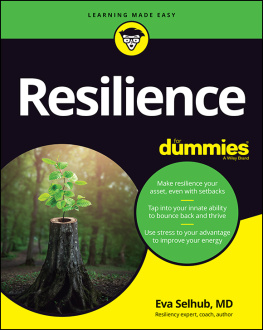
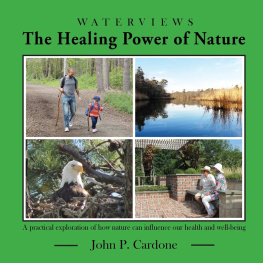
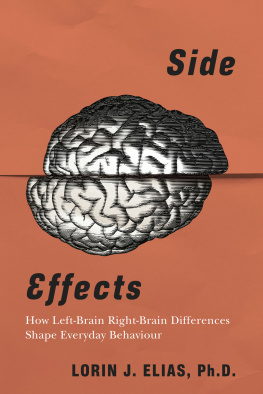
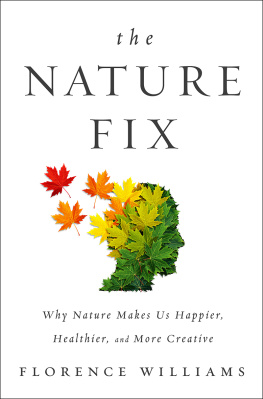
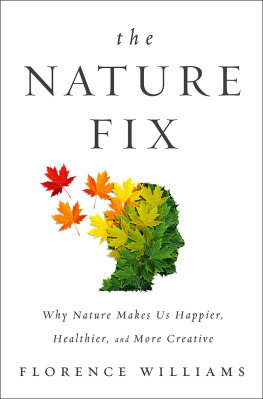
![SpeedyReads [Dell] - Summary of Switch On Your Brain; The Key To Peak Happiness, Thinking, And Health](/uploads/posts/book/117453/thumbs/speedyreads-dell-summary-of-switch-on-your.jpg)
